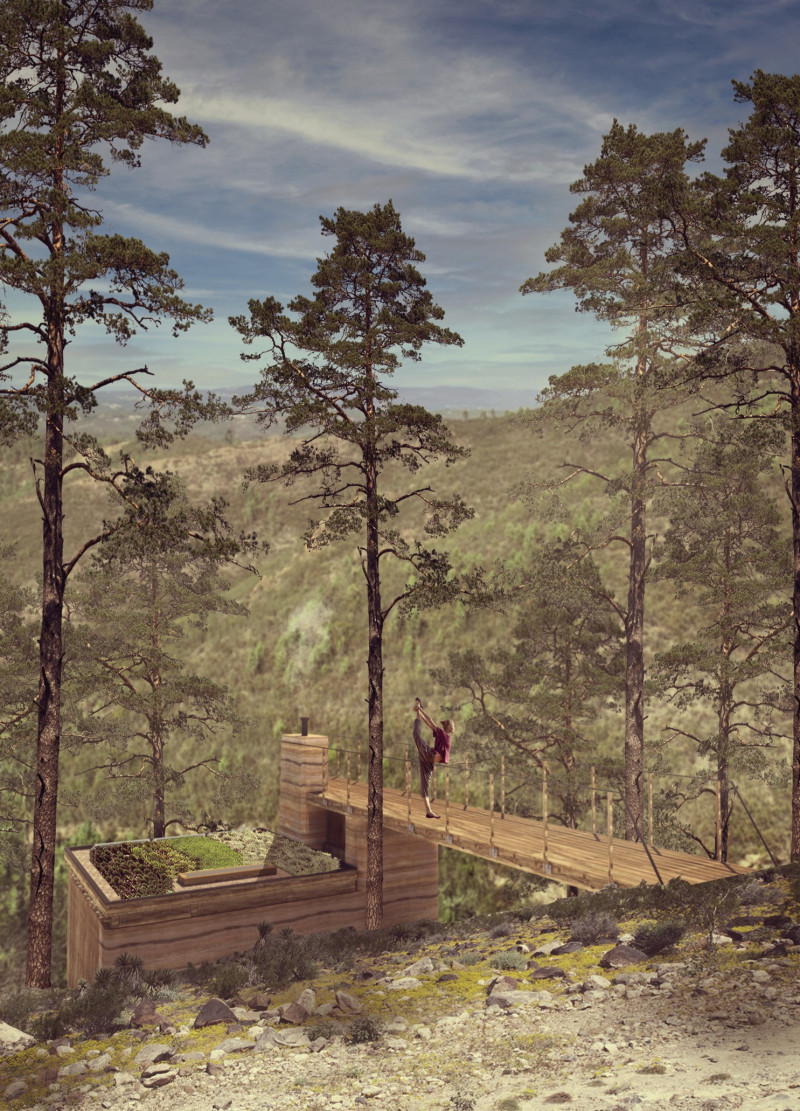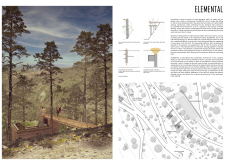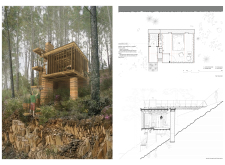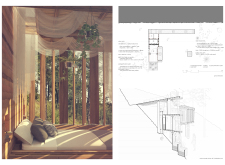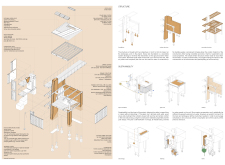5 key facts about this project
The Elemental architectural project represents a thoughtful integration of nature and built environment, emphasizing sustainability and the principle of ecological balance. Designed as a self-sufficient living space, the project orchestrates a blend of form, function, and natural elements. The architectural design prioritizes efficiency and community, aiming to create a harmonious interaction between residents and their surroundings.
The project's central design is organized around a core structure from which distinct areas designated for various functions radiate, representing the core natural elements: earth, air, water, and fire. This approach allows for seamless transitions between indoor and outdoor spaces, encouraging occupancy and interaction with the environment. The architecture prioritizes passive energy solutions, ensuring a minimal environmental impact.
Sustainability as a Guiding Principle
The Elemental project is built with sustainability in mind, utilizing materials including rammed earth, cork, and timber sourced responsibly from local suppliers. Rammed earth walls contribute to thermal mass, regulating indoor temperatures and reducing energy consumption. Cork provides additional insulation and structural integrity, while the timber frame construction supports the overall structure and reinforces the project’s commitment to eco-friendly practices.
Each architectural element is designed to minimize ecological disruption. The inclusion of a green roof system enhances biodiversity, allows for stormwater management, and further integrates the building within its natural context. Solar panels are installed to harness renewable energy, underscoring the project's self-sufficiency. Water management systems designed for recycling and purification are integral, promoting efficient use of resources.
Community and Interaction in Design
The spatial arrangement fosters community engagement. Common areas are designed for group activities such as yoga, meditation, and social gatherings, while providing private spaces that allow for personal reflection. This balance encourages interaction while maintaining individual comfort. Additionally, the design emphasizes natural light and airflow, contributing to occupant well-being through biophilic strategies.
What differentiates the Elemental project from conventional architectural designs is its holistic approach, integrating elements of the surrounding landscape into its framework. The project moves beyond standard architectural practices by encouraging occupants to engage with their environment actively. The combination of the four elemental themes with sustainable materials and community-focused design represents a forward-thinking architectural philosophy.
For a deeper understanding of the design and function of the Elemental architectural project, readers are encouraged to explore architectural plans, sections, and detailed designs presented in the project documentation. Reviewing these elements will provide valuable insights into the architectural ideas that shaped this unique project.


